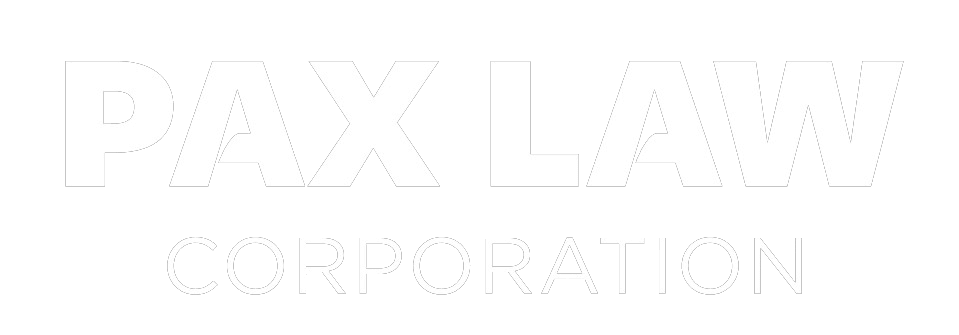Table of contents
Agency
A power of attorney is a widely used and versatile legal tool regulated by the Power of Attorney Act (“POAA”).[1] Due to its flexibility, public acceptance, and the absence of significant statutory safeguards for the donor, it can be susceptible to abuse or misuse by the attorney.
A power of attorney establishes an agency relationship in which one adult (the “Adult”) grants authority to another adult or a trust company (the “Attorney”) to manage some or all of their legal, financial, and property affairs.[2] In certain circumstances, a power of attorney may endure the Adult’s subsequent mental incapacity.
Capacity
In Egli v. Egli, 2005 BCCA 627. (“Elgi”), the British Columbia Court of Appeal established a common law test for determining capacity, influenced by the Re K, [1988] 1 All E.R. 358. England’s system required slightly lower capacity due to a registry for enduring powers of attorney. Following Egli, the 2011 amendments to BC’s Power of Attorney Act introduced a statutory test for capacity, increased procedural requirements, clarified attorney duties, restricted compensation, and prohibited paid caregivers from acting as attorneys. These changes are also clarified when the authority of an enduring power of attorney ends.[3]
Due to the potential for litigation over breaches of duties, it is recommended that attorneys seek independent legal advice before accepting these responsibilities. Additionally, the 2011 amendments converted certain Representation Agreements into enduring powers of attorney.
Attorney’s Duties: Verifying Capacity and Proper Execution
A power of attorney requires the adult’s signature to be witnessed, and the attorney must also sign the document with a witness present. Parties acting under a power of attorney owe a duty to act in the interests of the donor rather than themselves, except to the extent that a conflict of interest has been has been permitted by the donor. Pursuant to that duty, an attorney must apply the appropriate standard of care to investments made and must account for his or her actions.[4]
First Duty
As a result, the primary responsibility of any Attorney is to ensure two things:
- that the Adult possessed the necessary mental capacity to create the power of attorney validly; and
- that the document was executed correctly, with signatures from both the Adult and the Attorney, and both signatures witnessed.[5]
Second Duty
The second duty of an Attorney under a power of attorney arrangement is to act strictly within the authority that has been granted. This authority is clearly outlined in the power of attorney document, which specifies what actions the attorney is allowed to perform. For example, if the document grants authority over financial matters, the attorney can manage bank accounts, pay bills, or handle investments. However, the attorney must stay within the boundaries set by the document, and any actions beyond these limits would be considered unauthorized and potentially invalid.
Failure to act within the scope of authority outlined by the power of attorney document or to follow the Adult’s instructions can expose the attorney to legal consequences, including personal liability. It is essential for the attorney to fully understand and respect the boundaries of their role, ensuring all actions are within the legal authority given and in line with the Adult’s wishes.[6]
Examples of Misuse of Attorney Powers:
Most cases involving claims against attorneys typically involve the misappropriation of funds or instances of self-dealing by the attorney, particularly when the donor has become incapacitated, and a power of attorney in question is enduring.

In Egli[7] the principal, Hans Egli, was the elderly father of the attorney, David Egli. Hans Egli was granted an enduring power of attorney that took effect when he became mentally incompetent. David Egli, acting as attorney, transferred property and two investment accounts to himself, his wife, and his children, claiming that these actions were in accordance with the principal’s wishes to benefit them. However, the court set aside the transactions involving the investment accounts, as there was no evidence to support the attorney’s claim that the principal had knowledge of or consented to the transfers. Additionally, there was no indication that the principal intended to gift most of his assets to the attorney and his family members.[8]
Notwithstanding, the court allowed the attorney to receive the principal’s residence as a gift. It accepted the testimony of the lawyer who drafted the power of attorney, confirming that the principal intended for the attorney to own and live in the house and that the principal understood and approved the transfer. In other words, prior to becoming incapacitated, the principal clearly expressed the intention, supported by the lawyer’s evidence, that the attorney should receive the house as a gift. In this instance, the court ruled that, although the transfer of the property was not explicitly authorized in the power of attorney, it did not constitute a breach of the attorney’s fiduciary duty.
Egli stands for the principle that the granting of a power of attorney creates a fiduciary relationship between the attorney and the donor, thus requiring the attorney to use the power only for the benefit of the donor. The attorney can only use the power of attorney for their own benefit when acting with the full consent of the donor.
Another interesting case related to Rogue attorneys is Fraser (Guardian ad litem of) v. Fraser (“Fraser”).[9] In Fraser, the plaintiff sued his brother on behalf of their incompetent mother. The defendant had persuaded their mother to grant him sole power of attorney and subsequently used her funds for a poor investment in a company he was involved with without using the power of attorney to do so. After the mother became incompetent, the court found that the defendant had breached his fiduciary duty by investing without her direction or involvement and without exercising reasonable care. As a result, the court ordered the defendant to return the $40,000 investment plus interest.[10]
Remedies to Stop the Rogue Attorney
Family members who are suspicious or concerned about an attorney’s actions regarding an incapacitated individual often lack a clear understanding of the options available to validate their concerns, undo transfers made by the attorney, or remove the attorney before significant damage is inflicted on the donor’s assets or estate.
Demanding an Accounting
The POAA recognizes the common law principle that the relationship between a principal and an agent, including the duty to account, is a private matter. A third party can only request an attorney’s accounting when the donor is legally incapacitated (as outlined in s. 9(1)). Additionally, while individuals with an interest in the donor’s estate or others authorized by the court, such as the Public Trustee, can apply for a court order requiring the attorney to present their accounts, this can only occur for actions taken while the donor was incapacitated. As a result, if a capable principal’s affairs have been mishandled, the Act offers little remedy. Moreover, since the court has discretion in deciding whether to order an accounting, third parties with only suspicions of wrongdoing may not have enough grounds to prompt court action.[11]
Notwithstanding the above, in British Columbia, without the express authorization to review the financial records of an incapacitated donor, it may be difficult for concerned family members to substantiate or dismiss suspicions concerning an attorney while the donor is alive.
Revocation or Termination of the Power of Attorney
A mentally competent donor can revoke a power of attorney at any time. Revocation can also occur if a new power of attorney is granted that conflicts with the original or if the power of attorney is physically destroyed, provided that the destruction is accompanied by the intention to revoke it.[12]
In situations where the donor’s capacity is uncertain, family members are generally not recommended to assist with revoking a power of attorney or appointing a new attorney unless a medical or legal professional has confirmed the donor’s capacity. The current attorney could dispute the revocation’s validity or, even more concerning, could accuse the family members of exerting undue influence in their efforts to revoke the enduring power of attorney, regardless of their good intentions.[13]
The BC Court of Appeal has suggested that when an Adult creates a new power of attorney with terms that conflict with a previous one, the earlier power of attorney may be considered revoked, even without explicit wording to that effect. The court may assess whether the two powers of attorney can operate together or whether the newer one implicitly revokes the earlier one.[14]
Intervention by the Public Guardian and Trustee
The Public Guardian and Trustee (“PGT”) has the authority to investigate allegations of financial abuse through the Public and Guardian and Trustee Act[15], including actions taken by attorneys under a power of attorney. The PGT can audit the financial affairs of individuals, particularly when there is concern that a vulnerable person, such as a minor or incapacitated adult, is at risk. If the PGT believes that assets are in immediate danger, they can take swift actions, such as freezing accounts, redirecting income, or halting property transactions, to protect the individual’s financial interests. These protective measures can remain in effect for up to seven days or a shorter period as determined by the PGT.[16]
Recourse Through the Patients Property Act
The broad discretion granted by the Patients Property Act[17] (“PPA”) can be used to control the misuse of powers of attorney. Under section 2(1) of the PPA, the Attorney General, a relative, or another party can apply to the court to declare someone incapable of managing their affairs. If a court order or committee appointment is made under sections 3 or 6(1) of the Act, all powers of attorney previously granted by the individual are revoked. A court-appointed committee can then take control of the person’s financial or personal affairs, preventing attorneys from improperly making decisions on behalf of the incapacitated individual, especially regarding health care. Courts can also demand an accounting if there is evidence of misuse of power of attorney.[18]
Claims by Committees or Estate Representatives
Once someone other than a “rogue” attorney is granted an Order for Committee ship over a person’s estate, they have full authority to investigate, initiate legal proceedings, and recover assets or reverse transfers made without the donor’s consent or while the donor was incapacitated. Under Section 20 of the PPA, there is a rebuttable presumption that an incapacitated person was incapable of making valid gifts or transfers. This provision is beneficial when a rogue attorney claims that questionable actions, such as self-dealing or misusing funds, were done with the donor’s consent. According to Section 20, any transfer made by an incapacitated person is considered fraudulent and void if there was no adequate consideration or if the recipient knew of the person’s mental condition at the time of the transfer.
After the donor’s death, all powers of attorney and committee ship orders are terminated, transferring authority to the estate representative. If the executor of the will was previously the attorney suspected of misconduct, beneficiaries might claim a conflict of interest and seek the appointment of a new executor. If there is a potential for litigation over the executor’s previous actions as an attorney, the executor’s authority may be suspended until the issues are resolved. In Cooke v. Miller Estate[19], the Court of Appeal permitted someone other than the executor to take legal action to recover assets on behalf of the estate. However, in similar cases, the court has refused to give standing to a beneficiary alleging power of attorney abuse during the donor’s lifetime. In cases where only the estate can bring an action and the executor is unwilling to do so, applications to remove the executor or appoint a temporary administrator are likely.[20]
Conclusion

In conclusion, dealing with powers of attorney, mainly when issues of mismanagement or abuse arise, can be complex and legally challenging. Understanding the legal framework is crucial whether you are an attorney acting under a power of attorney, a family member concerned about misuse, or a donor seeking to protect your assets. From verifying capacity to understanding the limits of an attorney’s authority, and knowing when to seek legal remedies, the intricacies of power of attorney law require expert guidance.
If you find yourself facing any of these issues, it’s essential to consult with experienced legal professionals who can provide the advice and support you need. At Pax Law Corporation, our team is ready to help you navigate these legal challenges and protect your rights. Whether you’re dealing with a rogue attorney or need assistance drafting or revoking a power of attorney, Pax Law Corporation has the expertise to safeguard your interests. Don’t take chances with your legal matters—contact Pax Law Corporation today for assistance.
[1] R.S.B.C. 1996 c. 370.
[2] Andrew S. MacKay, “Powers of Attorney: Estate Litigation” in Estate Litigation Basics – 2012 Update (Vancouver: Continuing Legal Education Society of British Columbia, 2012) at 1.
[3] Ibid.
[4] Kimberly-Anne Kuntz, “Dealing with the Rogue Attorney” in Estate Litigation – 2009 Update (Vancouver: Continuing Legal Education Society of British Columbia, 2009) at 6.
[5] Ibid. at 3
[6] Kuntz, note 6 at 10.
[7] British Columbia (Public Guardian and Trustee of) v. Egli, supra.
[8] Ibid at 8.
[9] Fraser (Guardian ad litem of) v. Fraser, [2000] B.C.J. No. 244, paras. 25-26.
[10] Kuntz, note 6 at 9.
[11] David Simmonds, “Planning For Incapacity,” (1988) 27 E.T.R. 117.
[12] Gold v. Toronto Dominion Bank (2001), 197 D.L.R. (4th) 488, leave to appeal refused, [2001] S.C.C.A. No 254.
[13] Kuntz, note 6 at 11.
[14] Houston v. Houston, 2012 BCCA 300 at paras 20-21.
[15] R.S.B.C. 1996 c. 383.
[16] Ibid.
[17] R.S.B.C. 1996, c. 349.
[18] Kuntz, note 6 at 13.
[19] 2005 BCCA 263.
[20] Kuntz, note 6 at 14.




0 Comments